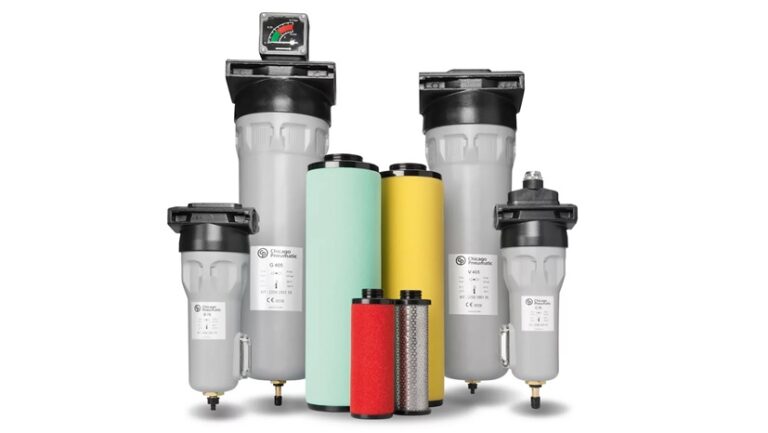Compressed air plays a critical role in modern industry. It powers tools, moves materials and supports automated systems. But the air that enters a compressor is not always clean. It carries dust, oil and moisture. Once compressed, these impurities become more concentrated. If not removed, they damage machines and affect product quality.
That is where line filters come in. They clean the air after compression. They protect the system from breakdowns. They help keep industrial processes running without interruption.
Why Compressed Air Needs Filtration
When air is pulled into a compressor, it brings in more than just oxygen. It brings dust from the shop floor. It carries oil vapour from nearby machines. It picks up moisture from the surrounding air. Once compressed, these contaminants are forced into every corner of the system.
Dust wears out valves and seals. Oil settles on parts and reduces efficiency. Moisture causes rust inside pipes and tanks. Over time, these problems reduce the life of the system. They lead to unexpected stoppages. They create high repair costs.
Line filters are the first defence. They capture these contaminants before the air reaches the equipment. They improve the quality of the final output. They protect everything that depends on compressed air.
What Line Filters Actually Do
A line filter is a device placed in the airflow after compression. It acts like a gate. It allows clean air to pass through. It traps particles, liquids and vapours. Each type of filter has a specific role.
Particulate filters remove solid dirt. These filters stop rust flakes and fine dust from entering the lines. Coalescing filters target oil and water in aerosol form. They force the small droplets to merge into larger drops. These drops are then drained from the system. Activated carbon filters go one step further. They remove oil vapour and smell. These are used when clean air must also be odour‑free.
In many setups, filters are used together. Each one removes a different type of impurity. When installed in sequence, they work as a complete air‑cleaning unit.
Where These Filters Are Used
Line filters are found in almost every industry. In automotive plants, they protect pneumatic tools. In food packaging, they keep air free from oil and smell. In electronics, they prevent damage to circuit boards. Even small workshops rely on them to keep compressors working smoothly.
In India, where dust levels can be high and humidity unpredictable, filters are even more important. Without proper filtration, systems fail faster. Tools wear out early. Energy costs go up because of pressure loss and leaks.
Every compressed air system needs a filter. The only question is which one and where it should be placed.
Long-Term Benefits of Using Line Filters
A line filter is not just a supporting part. It is a key element in system performance. It extends the life of machines connected to the compressor. It helps maintain constant airflow. It reduces pressure loss caused by blockages or contamination.
Clean air lowers maintenance needs. It improves tool accuracy. It reduces downtime. This saves both time and money. In regulated industries, it helps meet quality standards. For example, pharmaceutical labs need air that is free from oil and moisture. A line filter makes that possible.
Even in general manufacturing, product quality improves when air is clean. No more paint finish defects. No more sticky actuators. No more machine jams caused by dust particles.
Maintenance Keeps Filters Working
A line filter cannot be installed and forgotten. Over time, it collects dirt and oil. This slows airflow. It raises the load on the compressor. It increases electricity use. That is why filters need regular checks.
Inspect the filter housing every few weeks. Check for leaks. Clean the drains. Replace filter elements as advised by the maker. A pressure gauge helps spot early signs of blockage. If the reading drops across the filter, it is time to act.
A blocked filter is worse than no filter. It puts strain on the whole system. It lowers productivity. A clean filter, on the other hand, keeps the system balanced and energy costs stable.
Final Thoughts
Compressed air needs more than pressure. It needs purity. A compressor adds pressure. A line filter adds purity. Without both, the system is incomplete. Line filters remove what should not be there. Dust, oil and water do not belong in air tools or cylinders.
Every factory floor, workshop or plant that depends on compressed air must take filtration seriously. The filter may be small. But its effect is massive. It keeps machines running. It keeps products clean. It keeps people safe.
Installing the right filter and maintaining it regularly is not optional. It is essential. For India’s fast‑moving industries, where every minute counts, clean compressed air is not a luxury. It is a necessity. Line filters make that possible. Quietly. Reliably. Every single day.

